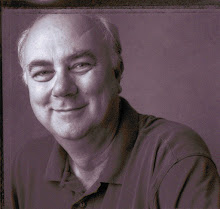Hillbilly Heaven, Population: One More
Bonnie Lou died the other day.
If you
grew up in east Tennessee in the fifties or sixties, you probably didn’t even
know she had a last name. She was just “Bonnie Lou” of “Bonnie Lou and Buster.”
Bonnie
Lou and Buster were probably the most famous couple in the Tri-Cities back then.
I can’t think of any more famous pair.
They
had a nightly TV show on WJHL-TV in Johnson City before most people even had a
TV. In fact when WJHL signed on in October of 1953 the station’s very first program
was “Mountain Music Makers,” which starred Bonnie Lou, Buster, Bonnie Lou’s
brother Lloyd “Ding Dong” Bell and Homer Harris, the 7 Foot Tall Smilin’
Cowboy.
When
I got the note from my friend Gary Chesney that Bonnie Lou had passed away, I
immediately started singing to myself:
Good
old mountain music,
Played
by a real hillbilly band.
Give
me rural rhythm,
Let
me sway right with 'em ,
I
think the melodies are grand.
I’ve
heard Hawaiians play
In
the land of the Wicki-Wacki,
But
I must say:
They
can’t beat “Turkey in the Straw,” by cracky!
I
love mountain music,
Good
old mountain music,
Played
by a real hillbilly band.
That
was the “Mountain Music Makers” theme that kicked off every TV show.
My favorite
part was the third verse.
You
could hear Bonnie Lou’s voice above the others, especially her mountain
pronunciation of “HI-waiian.”
I
loved that lyric: “I’ve heard HI-waiians play in the land of wicky-wacky.”
I
thought it was hilarious. Of course I was only six years old.
I don’t
remember if I was watching the night WJHL signed on. We didn’t have a TV yet.
But our next door neighbors, the Shankels, did and I went over many afternoons
before Johnson City came on the air to watch “The Big Top” on Charlotte’s WBTV.
Walter Shankel had erected a 20-foot-high antenna that would bring in that
distant signal. There were some areas of Kingsport that were on higher ground
or had a better line of sight that could get Charlotte without a tall tower of
an antenna.
When
we finally did get a TV, the next year, we watched Johnson City all the time.
We didn’t have a tall antenna so WJHL was the only station we could get.
And Bonnie
Lou and Buster were as familiar as our neighbors, they were on TV so much:
every night for half an hour.
I
wasn’t a fan of hillbilly music – I wasn’t a fan of any music at age 6 – but I was
a fan of TV and I thought Buster’s comic alter ego, Humphammer, was one of the
funniest people on TV.
Of
course with only one station, and my 8 p.m. bedtime, there wasn’t much
competition.
Bonnie
Lou and Buster were on WJHL for nine years, until pulling up stakes in 1962 and
heading for the greener pastures of Knoxville, where they were sponsored by Jim
Walter Homes. (In Tri-Cities their sponsor was Hayes and Reynolds, a furniture
store that I never visited but always wanted to, just because of Bonnie Lou. I can
still hear her distinctive pronunciation of Hayes and Reynolds when she did the
commercials.)
Bonnie
Lou’s passing got me to digging around in the archives. For someone who was so
familiar to me as a kid, I knew very little about her.
Bonnie
Lou was born Margaret Louise Bell in 1927 in South Carolina. Her family soon
moved to Mills River, North Carolina, just outside Asheville.
She
was singing in mountain music festivals with her brother Lloyd before either
had graduated high school.
When
she did graduate, she immediately married a mountain music maker from Newport,
Tennessee via way of WNOX radio in Knoxville, Hubert “Buster” Moore, who was
advertised as “Bashful Buster, the Wizard of the Five String Banjo.”
That
was 1945 and Hubert was recently back from service.
She was
18 and he was almost 26.
Buster may not have been the most handsome performer on WNOX but he was certain to be a good provider. In the 1940 census he listed his annual income as $5,000. The average annual income in the U.S. that year was $1,368. (He could afford a nice car, too; in 1935 he reported to the Knoxville police that someone had stolen his blue Pontiac roadster.)
For the
first year of their marriage they performed as “Buster Moore and Margaret.”
But
by summer 1946 they were performing daily on the Tobacco Network Jamboree radio
program out of Raleigh that was headlined by Lonnie Glosson and His Railroad
Playboys and featured “Buster Moore, Tennessee Blues Singer, Bonnie Lou, Kansas
Kitty, Lloyd Bell and Panhandle Pete.”
Not
quite “Bonnie Lou and Buster” but Margaret was now Bonnie Lou – Louise was her
middle name and Bonnie was the name of Buster’s recently deceased mother.
The first
mention I can find of “Bonnie Lou and Buster” is a January 1948 performance at
the Lyric Theatre in Erwin, Tennessee. They were performing on a bill with the
Cornel Wilde movie “Centennial Summer.”
By
the end of 1948 they were performing on WNOX’s “Midday Merry-Go-Round” as “Bonnie
Lou and Buster” and using Knoxville as a base for playing shows in Kentucky,
North Carolina and East Tennessee.
In
1952 they migrated to Bristol to perform with WCYB radio’s Tennessee Hill-Billy
Hay-Ride.
And
on October 6, 1953 the “Bonnie Lou and Buster” show debuted on WJHL radio,
sponsored by Courtesy Motors, and clearly a precursor to the TV show that would
premiere in three weeks.
And that’s
how Bonnie Lou (and Buster) entered my life, by cracky.











0 Comments:
Post a Comment
<< Home